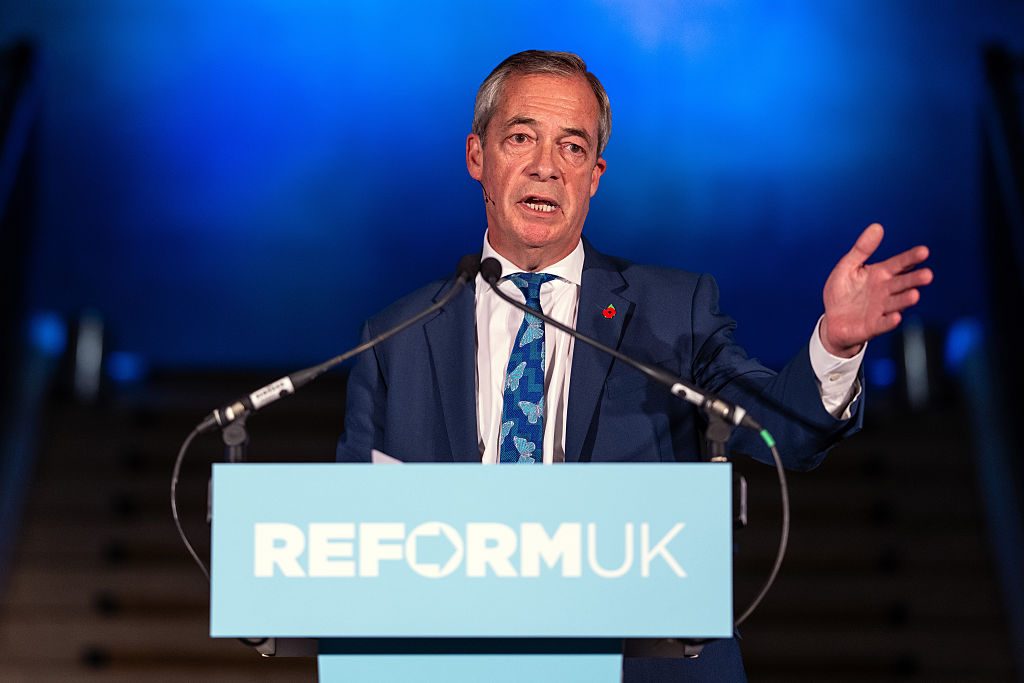Yesterday, Nigel Farage executed a dramatic U-turn and abandoned Reform UK’s policy of large-scale tax cuts. The only event in recent British political history that compares is the collapse of Liz Truss’s economic policy in October 2022, when she sacked her chancellor and scrapped the mini-Budget.
Reform’s 2024 manifesto promised tax cuts galore, including a pledge to raise the threshold for paying income tax to £20,000. According to the Institute for Fiscal Studies, this would cost at least £50 billion a year. This would end up costing considerably more if one assumes corresponding changes to related aspects of the taxation system such as National Insurance. I was hardly alone in deriding the party’s pitiful attempt to make the numbers add up.
As recently as May this year, Reform was still clinging to its fantasy economics. Not only did the party’s spokespeople double down on the income tax policy, they also pledged to reverse the Government’s proposed cuts to the benefits bill.
But at some point between then and now everything changed. Yesterday, Farage didn’t merely distance himself from previous announcements: he dismantled his party’s entire economic platform. The major tax cuts have been shelved until public spending comes under control, being labelled as “unrealistic”. The focus now is on slashing the benefits bill, not adding to it. So what has prompted Farage’s fiscal conservatism?
Really, it’s a result of the culmination of smaller factors. Reform now enjoys a solid lead in the polls. I don’t know how well Farage sleeps at night, but if he does wake up in a cold sweat it’s not because he thinks he might lose the next election. Quite the opposite — and the prospect of having to honour a manifesto must concentrate the mind wonderfully.
It’s become increasingly apparent to even the most fevered Right-wing imagination that you can’t raise tens of billions of pounds just by abolishing DEI departments and launching Government efficiency drives. The failure of the DOGE initiative at Reform-run Kent County Council, not to mention the underwhelming results of the MAGA model, may have convinced Farage and friends that shrinking the size of the state isn’t as easy as they’d led themselves to believe.
Another development is the fact that the Reform policy operation has been bolstered by the recruitment of serious individuals such as the former Conservative MP Danny Kruger and the Cambridge academic James Orr. What’s more, any scope for attacking Labour from the Left is constrained by the growing popularity of actual Left-of-centre parties — especially the Greens under Zack Polanski and Plaid Cymru in Wales. The result of the Caerphilly by-election is a reminder that, for a Right-of-centre party, there are limits to economic populism. While Reform is poised to win some seats in the Labour heartlands, the key to a Commons majority lies in the marginals of Middle England and the Red Wall.
Finally, the fragility of the UK’s finances can’t be ignored. Indeed, the single most interesting part of Farage’s remarks was his warning that a general election could come as early as 2027 if the current government is brought down by a looming debt crisis. In that case, the Reform leader would be faced with the exact same problems as Starmer is now.
At last year’s legislative elections in France, the threat of economic chaos was used to scare voters away from Marine Le Pen. Farage has apparently realised that similar tactics could be used against him. So expect Reform to present itself as the sound money party from here on out.











Join the discussion
Join like minded readers that support our journalism by becoming a paid subscriber
To join the discussion in the comments, become a paid subscriber.
Join like minded readers that support our journalism, read unlimited articles and enjoy other subscriber-only benefits.
Subscribe